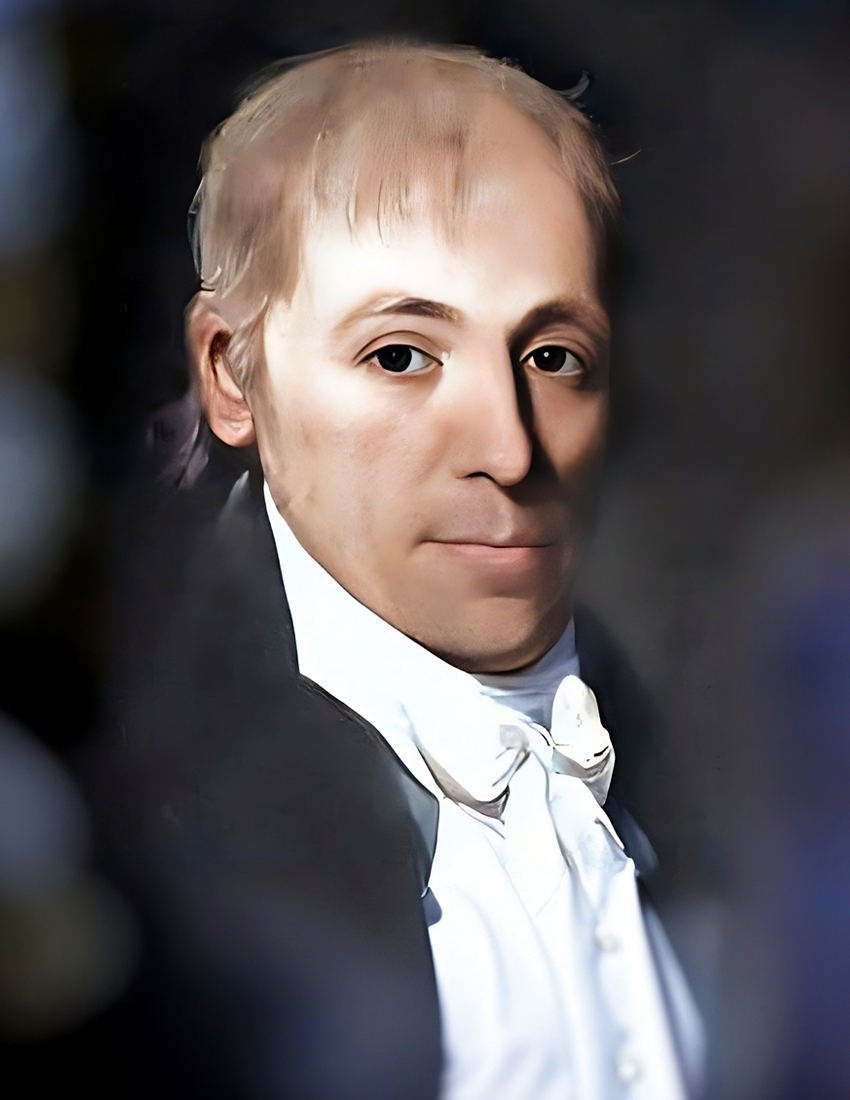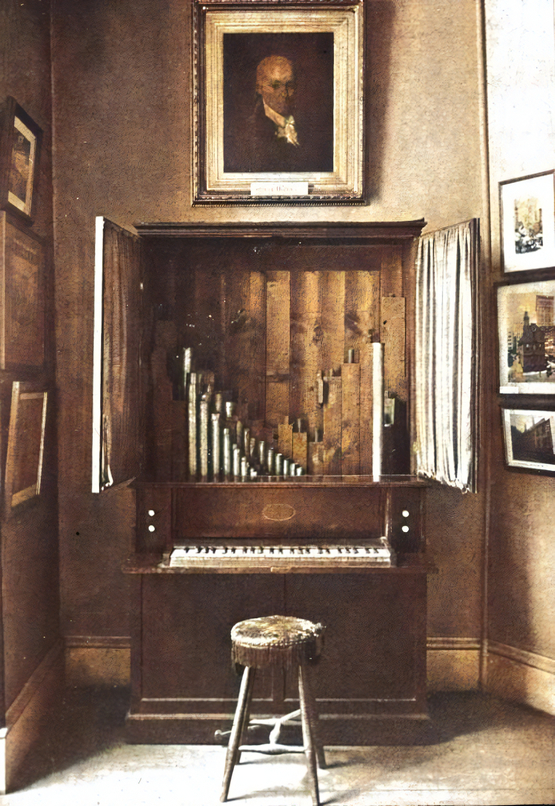Born: September 18, 1765, Shirley, MA.
Died: September 4, 1844, Charlestown, MA.
Buried: Phipps Street Burying Ground, Boston, MA.
Oliver Holden

Hymns by Oliver Holden
Oliver Holden organ and portrait. Given to the Bostonian Society by his granddaughter, Mrs. Fannie A. Tyler, in 1889.
The soaring notes of “Coronation” have echoed through centuries of Christian worship. Yet few who raised their voices in praise knew the remarkable story of the man behind the music. Oliver Holden, carpenter turned composer, had built more than just houses – he had constructed a legacy that would outlast any wooden frame.
From Battleship to Hymn Book
Oliver Holden’s journey began in the tumultuous days of 1765 in Shirley, Massachusetts. As a young man, he answered the call of revolution, serving as a marine aboard the USS Deane. The ship’s decks, awash with sea spray and gunpowder smoke, were an unlikely cradle for musical genius. Yet it was here, amidst the chaos of war, that Holden’s spirit of service and creativity first took root.
When peace finally dawned, Holden traded his sailor’s garb for a carpenter’s apron. He made his way to Charlestown, Massachusetts, a town still bearing the scars of conflict. With saw and hammer, he set about rebuilding not just homes, but a community. Little did he know that his greatest construction project lay not in wood and nails, but in notes and staves.
A Symphony of Pursuits
Holden’s life reads like a fugue, with multiple themes weaving together in harmonious complexity. By day, he plied his trade as a carpenter and dabbled in real estate. But as twilight fell, he would shed sawdust for sheet music, organizing singing schools that echoed with the sounds of sacred harmonies.
His passion for music blossomed into a prolific career as a composer and compiler of hymns. Works like “The American Harmony” and “Union Harmony” flowed from his pen, each showcasing his growing mastery of sacred music. But it was a simple tune called “Coronation,” paired with Edward Perronet’s words “All Hail the Power of Jesus’ Name,” that would secure Holden’s place in the annals of hymnody. Holden’s musical tributes to the nation’s first president bookended Washington’s career – from the joyous ode greeting him in Boston to the somber “A Dirge, or Sepulchral Service” composed for Washington’s memorial service in 1800.
A Chorus of Civic Duty
Holden’s influence extended far beyond the choir loft. He donned the apron of a Freemason, joined the ranks of the Massachusetts House of Representatives, and even took up the mantle of pastor. When George Washington visited Boston in 1789, it was Holden who composed and conducted the ode that greeted the nation’s first president.
In every role, Holden brought the same dedication and creativity that marked his musical compositions. His life was a symphony of service, each movement building upon the last in a crescendo of civic engagement.
The Final Measure
As autumn approached in 1844, Holden’s earthly song drew to a close. Yet even in his final moments, music coursed through his veins. His last words paint a poignant picture of a man still brimming with melody: “I have some beautiful airs running through my head, if I only had the strength to note them down.”
Oliver Holden’s mansion in Charlestown once stood as a silent tribute to the man who had filled it with song. For a time, transformed into a school bearing his name, it continued his legacy of building up the community he loved.
But it is in churches across America and beyond where Holden’s true legacy lives on. Each time voices join to sing “All Hail the Power of Jesus’ Name,” they breathe new life into the work of a humble carpenter who crafted melodies as skillfully as he shaped wood.
Oliver Holden’s life serves as a powerful reminder that greatness often springs from the most unlikely sources. A marine, a builder, a legislator, and a pastor – Holden wore many hats. But it is as a composer that he found his truest voice, one that continues to ring out clear and strong, inviting all to join in the enduring chorus of faith.


